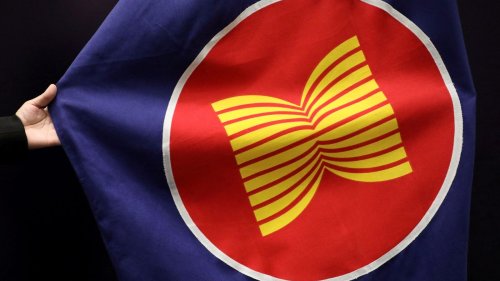From M. Saraswathi
DAVOS (Switzerland), Jan 22 (Bernama) — ASEAN displayed sheer confidence and grit at the just-concluded World Economic Forum (WEF) 2023, conveying a positive outlook for the region while acknowledging that issues within the 10-member bloc can be dealt with amicably.
And why not?
According to the regional grouping’s statistics, ASEAN recorded a total gross domestic product (GDP) of US$3.3 trillion in 2021, making it the fifth largest economy in the world and the third largest in Asia.
In a report published in March last year, the Organisation for Economic Cooperation and Development forecast that ASEAN would enjoy real GDP growth of 5.2 per cent in 2022 and 2023.
“I think for ASEAN as a whole, there are a lot of opportunities. We are the fastest growing bloc in the world. The population now is 660 million,” said Malaysia’s International Trade and Industry Minister Tengku Zafrul Abdul Aziz.
ASEAN is well on track to become the fourth largest economy by 2030, by which time it would have a total population of about 700 million people with 61 per cent under the age of 35.
Studies have shown that ASEAN, as a neutral bloc, is a net beneficiary of China’s reopening, said Tengku Zafrul, who led the Malaysian delegation to the WEF meeting from Jan 16-Jan 20, 2023, at the ski resort town of Davos.
Foreign direct investment (FDI) inflows into Asean reached its highest ever level in 2019 at US$182 billion, making ASEAN the largest recipient of FDI in the developing world, according to ASEAN Investment Report 2020-2021.
Due to the unprecedented impact of the COVID-19 pandemic, FDI declined to US$137 billion in 2020, which is quite significant, but compared to the decline of global FDI level, ASEAN still performed slightly better as its share of global FDI actually rose from 11.9 per cent in 2019 to 13.7 per cent in 2020.
ASEAN Investment Report 2022 said there was a robust rebound in FDI inflows in 2021, which surged 42 per cent to US$174 billion.
“With a large market and strong regional integration, ASEAN remains a major FDI destination in the developing world – second only to China – and will play an important role in driving global economic recovery,” the latest report said.
Investment from the United States (US) was the highest, rising by 41 per cent to US$40 billion, while FDI from China soared by 96 per cent to almost US$14 billion.
The positive momentum was also shared by Indonesia’s Coordinating Minister for Maritime Affairs and Investment, Luhut Binsar Pandjaitan, who was steadfast in assuring the forum that all is well with Asean’s stability and economy outlook despite a rather sober outlook for the global economy.
According to WEF, a majority the forum’s Community of Chief Economists expect a global recession in 2023, see geopolitical tensions continuing to shape the global economy, and anticipate further monetary tightening in the US and Europe.
The prospects for growth in 2023 are bleak, especially in Europe and the US, it said.
There are uncertainties given the various challenges including the geopolitical tensions, Luhut agreed, but as ASEAN’s chair for the year, Indonesia can do what it takes to ensure the region remain stable and continue to grow.
“Thailand, Vietnam, the Philippines and Indonesia we are doing pretty good this time,” he said at a session called ”The Pulling Power of ASEAN.”
When session moderator, the Financial Times associate editor and chief foreign affairs commentator Gideon Rachman, said, ”But you have a war next door”, Thailand’s Deputy Prime Minister and Minister of Public Health Anutin Charnvirakul corrected his remark in a heartbeat, saying that it is an internal issue.
“We don’t go to war with each other. We only compete in trade.
“We don’t have any differences in politics or intervene with each other,” Anutin pointed out.
Both the Indonesian and Thai ministers were also on the same page regarding Myanmar, saying that ASEAN will continue to engage the country while maintaining its non-interference policy in domestic issues.
Tengku Zafrul said the forum has given countries like Malaysia, Indonesia and Thailand the opportunity to share the perspective of emerging nations on many issues, including environmental, social and governance (ESG).
“We need to ensure that we get our points across, because globally every country is at a different stage of growth, different stage of development. So, you cannot apply the same standard, the same policies to achieve what everyone wants to achieve,” he said.
Large nations should also consider the needs of the smaller countries to ensure a fairer transition, the minister said.
“This view was also shared by our neighbour, Indonesia, during my meeting with Luhut Binsar Pandjaitan and its Investment Minister Pak Bahlil Lahadalia,” Tengku Zafrul said.
“God willing, ASEAN nations will continue to ensure the interest of our region will always be safeguarded.”
For Malaysia specifically, he said, the presence of “Malaysia House” was a good start.
“We have to be on every other global platform to understand where the world is heading, new trends and challenges.
“We need to be aware of what is happening globally. We cannot just sit there and focus on what we think is best for us without understanding and adapting to the changes globally,” he noted.
During the five days here, the minister held engagements with major companies such as Intel Corporation, Ericsson, Microsoft, Procter & Gamble, AstraZeneca, Estee Lauder, Honeywell, Amazon Web Services as well as Port of Antwerp-Bruges.
Besides his ASEAN counterparts, Tengku Zafrul also had bilateral meetings with South Korea’s Trade Minister Dukgeun Ahn and New Zealand’s Minister of Trade and Export Growth, Damien O’Connor, here.
The 53rd WEF annual meeting brought together 2,700 leaders from 130 countries, including 52 heads of state.
This year’s meeting, themed “Cooperation in a Fragmented World: Addressing Pressing Crises, Tackling Future Challenges” was held during a period of multiple crises which have deepened divisions and fragmented the geopolitical landscape.
— NNN-BERNAMA






